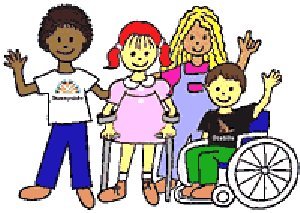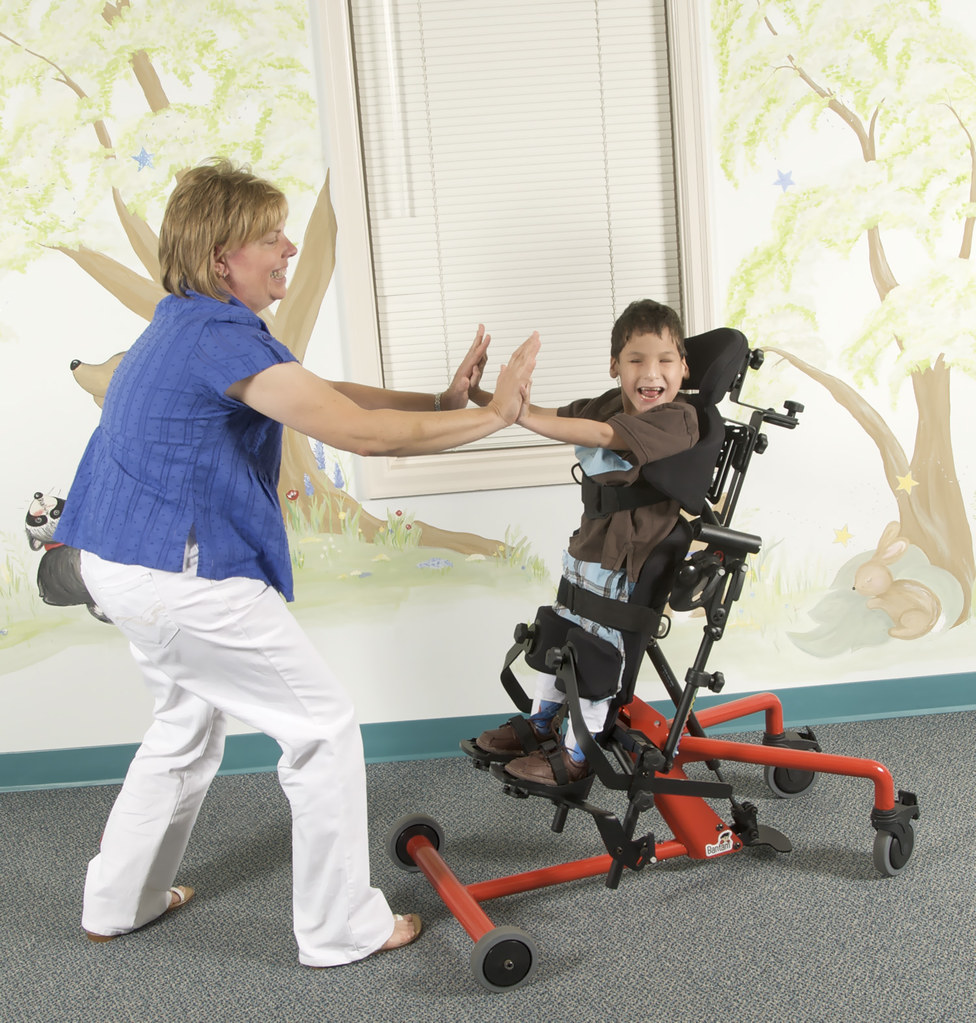
This supplemental link contains information specific to Special Ed students.
However, in order to underscore the fact that AMCH is aligned with providing an appropriate education in the least restrictive environment, all curriculum and services for K-8 are accessible to Special Ed pupils. Please click the domain link, Ave Maria Catholic Homeschool Services Special Ed/K-8 for general information.
Nevertheless, if any of AMCH’s Regular Ed curriculum and services are inappropriate for your child, AMCH offers, on an individual basis, applicable modifications and aids to the Regular Ed coursework/services, and/or separate IEPs utilizing more relevant books and programs.
State Statutes Specific to Special Need Homeschool Students
While most states are fairly lenient in regard to the home education of special needs children, four in particular–Pennsylvania, Iowa, Vermont, and North Dakota–require that parents complete additional procedures before being granted legal permission to home school. In Pennsylvania, a home education program for a special needs student must be approved by a licensed school psychologist or special education teacher. Iowa’s home schooling laws state that an Area Education Agency director must approve a special education curriculum. Vermont requires documentation of a child’s special needs on a homeschool enrollment notice, while North Dakota’s special education laws dictate that homeschooled children must have an official diagnosis from a licensed psychologist and that parents must file an education plan with their local school district. In all other states, children with special needs can be legally homeschooled in the same manner as regular education students.
Complementary Services from Your School District


It is also beneficial for you to know that you may be able to obtain supplemental services, like speech therapy, physical therapy and other special programs for your homeschooled child from your school district.
If you are interested, contact your school district. They take the following steps which are part of the Individuals with Disability Education Act IDEA:
*Notify the parents of the intent to evaluate
*Obtain written consent for evaluation, placement in special education and development of the IEP
*Develop an appropriate IEP that measures the satisfactory educational process of your home-schooled child
*Re-evaluate the child for eligibility for special education every three years
Under some state’s regulations, if a home-schooled child is found to be eligible for special education services BUT those services would only be provided if the student enrolled in public school, the school district does not have to provide assistance to the child; however, in this case, the parent can consider enrolling them part time in the public school so they can receive services. That is, taking a single class like math or art can allow your child to receive services and may be worth it for you.
Furthermore, in other states, there is no official policy about providing services for homeschoolers. A few states, including Hawaii, New York, and New Hampshire, leave the decision to offer state funding to home schoolers with special needs at the discretion of the school district. Moreover, some states that consider home schools as private schools will provide special education services.
It is also important to know that, like all students, parents of a home-schooled child have the right to refuse consent for the evaluation, revoke consent, or refuse to make the child available for evaluation.
If you choose to have a school district IEP drawn up, AMCH will merge district’s objectives with the goals established by the informal AMCH IEP.
Civil and Educational Law Protecting the Rights of Special Needs Students
If you are unaware of or interested to know more about your child’s rights under United States civil and educational laws, here is some information:
Section 504 The Americans with Disabilities Act
Section 504 reads: “No otherwise qualified handicapped individual in the United States shall solely, by reason of his handicap, be excluded from participation in, be denied the benefits of, or be subjected to discrimination under any program or activity receiving Federal financial assistance (this would include public schools).”
For a detailed description of what this law entails click the link below:
https://www.understandingspecialeducation.com/section-504.html
IDEA Individuals with Disability Education Act
The Individuals with Disabilities Education Act (IDEA) is a law that makes available a free appropriate public education to eligible children with disabilities throughout the nation and ensures special education and related services to those children.
For a detailed description of IDEA, click on the link below.
https://www.understandingspecialeducation.com/special-education-law.html
While Section 504 is a civil rights law, IDEA is an educational law. However, Congress reauthorized the IDEA in 2004 and most recently amended the IDEA through Public Law 114-95, the Every Student Succeeds Act, in December 2015.
In the law, Congress states:
Disability is a natural part of the human experience and in no way diminishes the right of individuals to participate in or contribute to society. Improving educational results for children with disabilities is an essential element of our national policy of ensuring equality of opportunity, full participation, independent living, and economic self-sufficiency for individuals with disabilities.
. The Education for All Handicapped Children Act
Originally passed in 1975, the Education for All Handicapped Children Act (EHA) — frequently referred to as Public Law 94-142 — requires that all public schools accepting federal funds must provide equal access to education for children with physical and/or mental disabilities. This paved the way for special education as we know it today. Prior to 1975, only a few small districts provided education for students with disabilities in the U.S. To receive federal funding for special education today, states must comply with the law. EHA is also a civil law.
The Assistive Technology Act
Originally instated in 1998, the Assistive Technology Act was reauthorized in 2004. It provides assistive technology to persons with disabilities so they can more fully participate in education, employment and daily activities on level playing fields with other people in their communities. Because technology plays an increasingly important role in our lives — from business functions to providing education — it impacts individuals with disabilities no less than the remainder of U.S. citizens.
Under the law, each U.S. state receives a grant to fund Assistive Technology Act Programs (ATAP) that provide services to persons with disabilities for their entire lives. The 56 ATAPs created under the law provide a place where users can go for product demonstrations, low-cost loans for their purchases and information on these products.
The Handicapped Children’s Protection Act
While the EHA mandated that all public schools receiving financial support from the federal government provide special-needs students with nondiscriminatory access to all educational programs, the Handicapped Children’s Protection Act (HCPA) of 1986 was created to instate provisions not covered by the EHA. For example, the EHA does not directly address legal cost relief available for parents who prevail in lawsuits based on violations of EHA provisions.
The HCPA came to be after the United States Supreme Court’s ruling in the 1984 case Smith v. Robinson. It was found that existing enforcement mechanisms of disability rights did not cover how, when and/or where legal costs are to be resolved.
The HCPA amended the EHA to authorize the award of reasonable attorneys’ fees, expenses and costs to the parents or guardian of a handicapped child or youth who is the prevailing party in a civil suit to protect the child’s right to FAPE.

